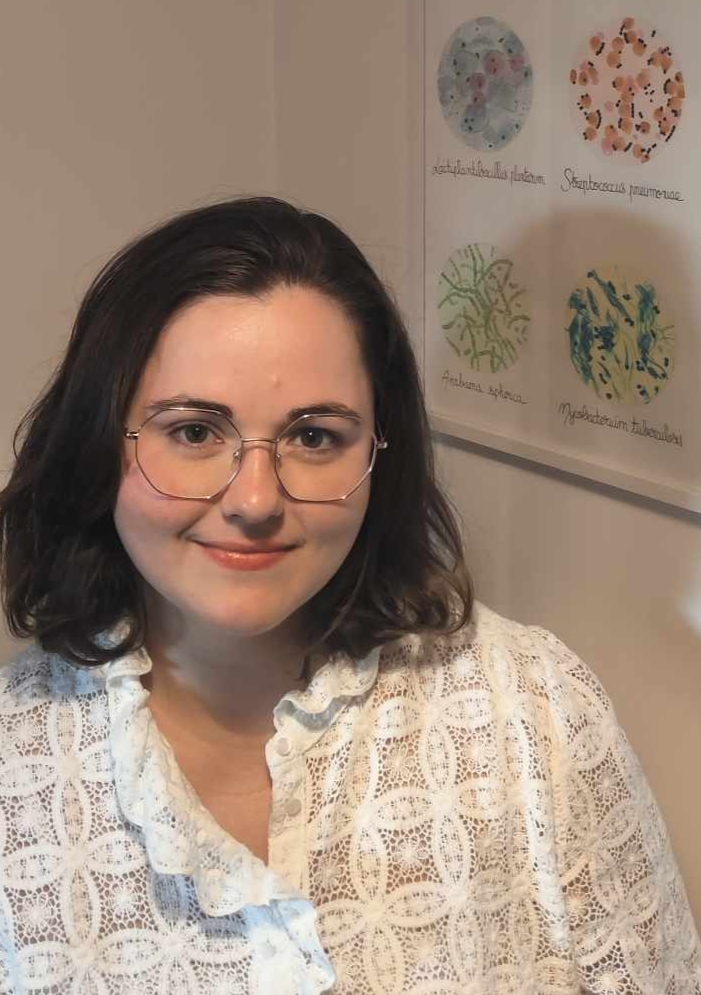MMSB, Lyon, France The morphogenic protein CopD controls the spatio-temporal dynamics of PBP1a and PBP2b
Streptococcus pneumoniae. mBio 14:e01411-23https://doi.org/10.1128/mbio.01411-23
Lenoir C, Pelletier A, Manuse S, Millat H, Ducret A, Galinier A, Doan T, Grangeasse C.
Cv
Cassandra Lenoir, aged 26, began her scientific journey with a degree in Biological and Biochemical Analysis completed in Lyon, followed by a Bachelor of Sciences in Edinburgh, Scotland. She then pursued a Master's degree in Microbiology in Lyon before joining the Pathogenic Bacteria and Protein Phosphorylation team, headed by Dr Christophe Grangeasse (MMSB, Lyon) for her Master's internship and doctoral studies (PhD thesis defended in December 2023). Throughout her academic journey, she developed a keen interest in microbiology and bacteriology. She is particularly concerned about societal issues related to health and antimicrobial resistance. Currently, she is a project manager at a leading French biotech company, where she continues to contribute to innovative scientific advances.
Contact
Covalab, 1 rue Jacques Monod, 69500 Bron
This email address is being protected from spambots. You need JavaScript enabled to view it.
Résumé de l'article
Penicillin-binding proteins (PBPs) are key to the assembly of peptidoglycan, the major component of the bacterial cell wall. Although several PBP-specific regulatory proteins have been identified in different species, little is known about how the activity of PBPs is controlled and coordinated during the cell cycle. In this study, we characterize the unknown function protein Spr1400 and demonstrate its regulatory function on two PBPs in Streptococcus pneumoniae. For that, we use a combination of technics ranging from bacterial genetics and protein biochemistry to microscopy imaging. First, we show that pneumococcal Spr1400 localizes late to the cell division septum. Furthermore, deletion of spr1400 results in wider cells. Using co-immunoprecipitation and bacterial two hybrid (B2H), we observe that Spr1400 interacts with two PBPs, the class A PBP PBP1a and the class B PBP PBP2b, which are required for cell elongation. Microscale thermophoresis combined with B2H further reveals that these interactions occur through their transmembrane domains. We also show that Spr1400 co-localizes with PBP1a and PBP2b throughout the cell cycle. Strikingly, deletion of spr1400 alters the dynamics of PBP1a and PBP2b. Indeed, the two PBPs persist longer at the division site and localize later at the division site of daughter cells. Collectively, these data demonstrate that Spr1400, thus named CopD for coordinator of PBP1a and 2b dynamics, is a spatio-temporal regulator of PBP1a and PBP2b required for pneumococcal morphogenesis.




